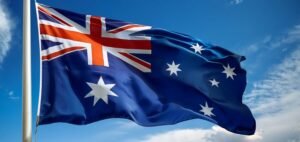In a further demonstration of increasing scientific capabilities, Saudi Arabia obtained another medal in its mounting collection with a bronze medal in the 2025 International Nuclear Science Olympiad (INSO) held in Kuala Lumpur, Malaysia.
Organized between July 30 and August 6, the Olympiad brought together 56 high school students from 14 countries, including China, Japan, Singapore, Türkiye, and Indonesia, to tackle the high-order nuclear science problems. The hot competition consisted of a five-hour theoretical examination and a similarly demanding practice session, challenging thinking skills as much as experimental hands-on skills.
Saudi hopeful Azam Khaled Al-Omari of Jeddah, a teenager, took the bronze after intense preparation through a national training scheme. He was selected through intense performance-based exams, which improved his understanding of nuclear principles and experimental thinking.
This victory contributes to Saudi Arabia’s total medal count at the INSO to five: one silver and four bronze so far—a testament to the nation’s continued and deliberate investment in scientific excellence. Most importantly, these programs are backed by a structured collaboration of Mawhiba (King Abdulaziz and His Companions Foundation for Giftedness and Creativity), the Ministry of Education, KACST (King Abdulaziz City for Science and Technology), and K.A.CARE (King Abdullah City for Atomic and Renewable Energy). Together, they have established a strong ecosystem to nurture gifted students with theoretical learning, hands-on practice, and high-level guidance.
This year’s competition was more than a personal triumph stage; it was also a showcase of Saudi Arabia’s growing regional muscle in spearheading science innovation. Oman, another Gulf competitor, also fared well—scoring one silver and two bronze medals, showing greater Middle Eastern presence in high-stakes science competitions.
As nations of the world vie for nuclear dominance—specifically in less objectionable, peaceful technologies—the achievements of budding scientists like Al-Omari are beacons of hope and promise. The INSO, with the support of the International Atomic Energy Agency, continues to raise visionaries to dream up safer nuclear technology and advance the scientific boundaries of the world.
Saudi Arabia’s trip to Kuala Lumpur is evidence of its initial step towards science excellence, a glimpse at a future filled with innovative minds, well-equipped institutions, and the entire country striving for knowledge and innovation.




